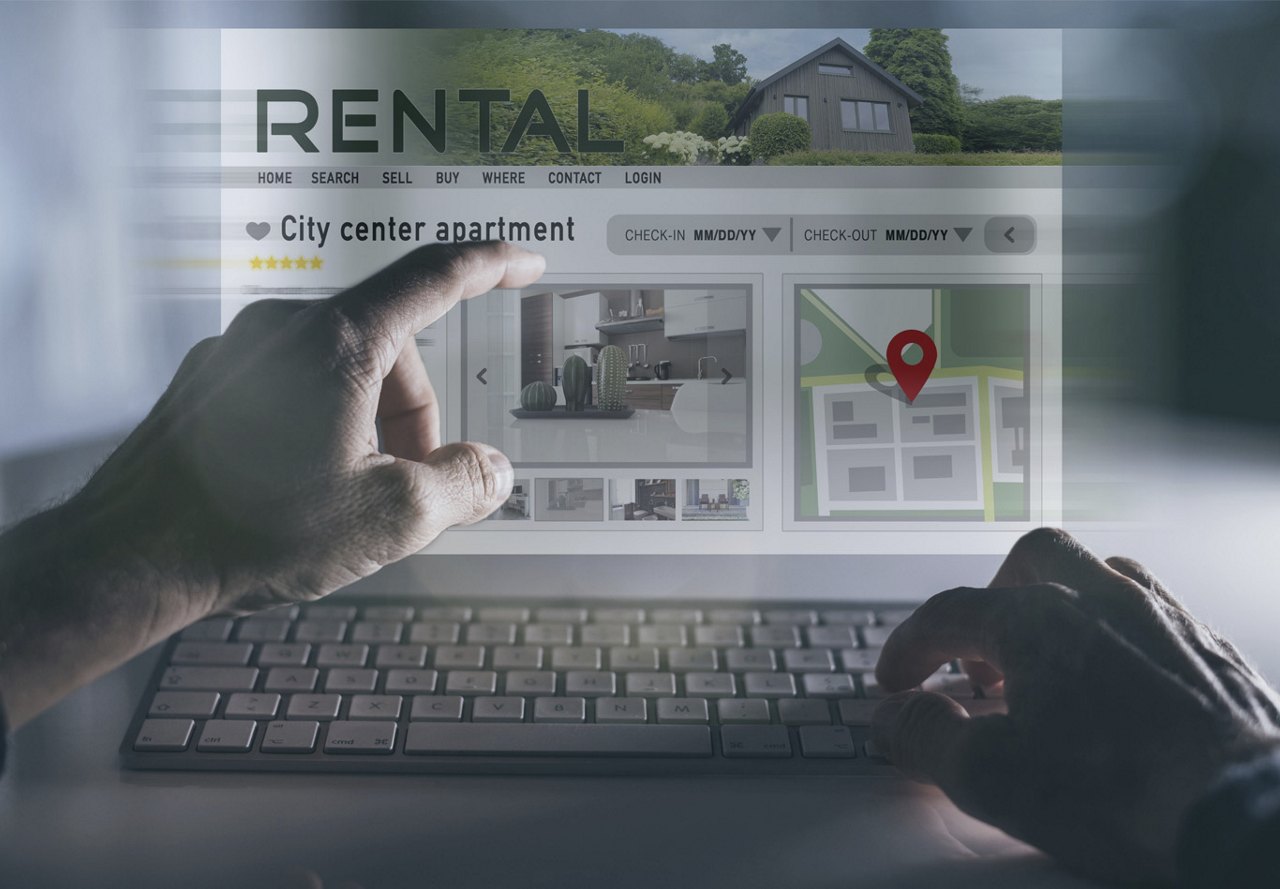How to Avoid Rental Scams
Important Note: Greystar Real Estate Partners has been made aware that a rental scammer is using Greystar’s name.
If you have been affected by a scam, or have been contacted in relation to tax services, please follow the steps the US government outlines and report it. Refer to our safeguarding tips below for more information:
Renting a new apartment is an exciting milestone and the start of a new chapter in life. While it’s a fresh beginning, it can also be overwhelming for first-time renters. Finding the perfect floor plan and location is important, but ensuring you’re dealing with a legitimate and reputable property owner should be your top priority. Keeping this in mind is crucial when trying to stay away from scams. Explore our comprehensive guide to help you spot and avoid rental fraud effectively.
Understanding Rental Scams and Their Prevalence
Rental scams are more common than one might think - and they come in many forms. Scammers often pose as property managers or landlords for apartments they don’t own–or even apartments that don’t exist. In some cases, the scammer might own the property but will alter the listing to make the apartment appear more appealing than it really is. For example, they might use outdated or heavily edited photos, omit crucial details about the apartment's condition, or falsely claim that amenities are included.
Another common tactic is to request a deposit before you’ve had a chance to sign a lease. This strategy is designed to lock you in financially before you have a chance to notice any red flags.
Top Tips to Protect Yourself from Rental Scams
A 2018 survey revealed that 43.1% of renters have come across suspicious listings, and 5.2 million renters in the U.S. have lost money due to rental scams. The most targeted demographic are renters aged 19 to 29. This age group, often seeking affordable housing in new cities, is more susceptible to these fraudulent schemes, despite being relatively tech-savvy. Keep the tips below in mind to avoid fraudulent activity.
1. Be Cautious of Too-Good-to-Be-True Listings
- Red Flag: If an apartment listing seems unusually attractive, it might be too good to be true. Scammers often entice potential renters with below-market prices or exceptionally attractive features that don’t exist.
- Detail Checking: Examine the listing thoroughly for errors or vague information. Look for inconsistencies in the description, such as claims about the apartment’s condition that don’t match the photos. Poor grammar and spelling can also indicate a fraudulent listing. Scammers may cut corners when creating their listings, resulting in noticeable mistakes that can serve as warning signs.
- Cross-Verification: Compare the listing with similar properties in the area to see if the price and features align with market rates. If the deal seems too good, cross-check with local real estate websites or rental platforms for comparable listings.
2. Conduct Thorough Research
- Red Flag: Always meet with the property owner or manager in person and view the apartment before making any financial commitments. If the landlord refuses to let you see the property or insists on a deposit before you’ve signed a lease, it’s a major red flag.
- Verification: Verify ownership by checking city records or contacting a building manager. Public records can confirm the owner’s identity and whether they have the right to rent out the property. Additionally, check online reviews and ratings of the landlord or property management company.
- In-Person Visits: During your visit, inspect the apartment to confirm that it matches the listing. Make sure the amenities and features are as advertised, and that the condition reflects what was promised.
3. Avoid Cash Transactions
- Red Flag: Scammers often prefer cash transactions or wire transfers because they are untraceable and difficult to recover. Cash-only requests are a significant warning sign.
- Secure Payment Methods: Always use secure, traceable payment methods such as checks or electronic transfers through established platforms. These methods provide a record of the transaction, which can be crucial in case of any disputes.
- Lease Agreement: Never pay any money before you have signed a written lease agreement. A legitimate landlord or property management company will have a formal process for collecting rent and deposits. This should include clear documentation and payment methods.
4. Sign a Written Lease
- Red Flag: Verbal agreements are unreliable and can lead to misunderstandings or disputes. A written lease agreement clearly outlines the terms and conditions of your rental, providing protection for both you and the landlord.
- Lease Terms: Ensure that the lease includes all necessary details such as the rent amount, deposit requirements, duration of the lease, and responsibilities for maintenance and utilities. Carefully review all terms before signing and make sure you understand them fully.
- Reporting Fraud: If you suspect a rental scam, report it immediately to local law enforcement or the Federal Trade Commission (FTC). Prompt action can help prevent others from falling victim to similar scams.
5. Rent Through Reputable Management Companies
- Red Flag: Renting from unknown sources or individual landlords without a proven track record can increase your risk of encountering fraud. Opt for well-known property management companies that have established reputations for integrity and professionalism.
- Reputable Firms: Trusted companies like Greystar employ experienced leasing agents and follow strict procedures to ensure the legitimacy of their listings. These companies have systems in place to protect renters and maintain high standards of service.
- Background Checks: Reputable property management companies will conduct thorough background checks and provide clear documentation ensuring that both the property and the lease terms are legitimate.
Beware of Fake Social Media Profiles
Scammers are increasingly using fake social media profiles to commit rental fraud. These profiles often use stolen photos and personal information to appear legitimate, offering what seem like great deals on rental properties.- Profile Verification: If someone contacts you through a social media profile offering a rental property, verify their identity before proceeding. Look for inconsistencies like recently created accounts, minimal activity, or lack of a genuine social media presence.
- Social Media Red Flags: Reputable companies and landlords do not use personal social media profiles for conducting rental transactions. If a property manager or landlord tries to finalize a rental agreement or requests money through social media, it's likely a scam. Always use official channels for communication and transactions.
- Safety First: When in doubt, rely on established rental platforms and communicate through verified methods. Your safety and financial security come first, so it’s always better to be cautious.
By following these tips, you can protect yourself from rental scams and find a secure, enjoyable place to call home. Educating yourself about potential fraud tactics and staying vigilant are essential for a smooth and stress-free renting experience.
Remember, thorough research and caution are your best defenses against rental fraud. Visit Greystar today to start browsing apartments.
The information presented on or through this Website is made available solely for general information purposes. We do not warrant the accuracy, completeness, or usefulness of this information. Any reliance you place on such information is strictly at your own risk. We disclaim all liability and responsibility arising from any reliance placed on such materials by you or any other visitor to this Website, or by anyone who may be informed of any of its contents. Any reference to amenities, services, rules, policies, or procedures at a Greystar apartment community is general in nature, and each Greystar apartment community may have amenities, services, rules, policies, and procedures that differ from those referenced on this Website. Please consult with your Greystar apartment community for the exact amenities, services, rules, policies, or procedures applicable.
This Website may include content provided by third parties, including materials provided by other users, bloggers, and third-party licensors, syndicators, aggregators, and/or reporting services. All statements and/or opinions expressed in these materials, and all articles and responses to questions and other content, other than the content provided by Greystar, are solely the opinions and the responsibility of the person or entity providing those materials. These materials do not necessarily reflect the opinion of Greystar. We are not responsible, or liable to you or any third party, for the content or accuracy of any materials provided by any third parties. The information contained within does not relate to Greystar Investment Group, LLC’s investment advisory business.





